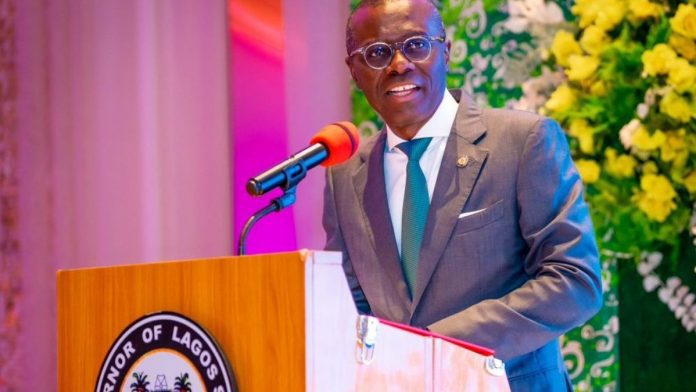News in brief:
-Â Lagos State Governor Babajide Sanwo-Olu is set to inaugurate a state-of-the-art “middle-level food agro-hub” that aims to address challenges in distribution and post-harvest losses.
– The facility is designed to be a game-changer in enhancing food security, tackling inflation, and could serve as a model for replication in other parts of Nigeria if successful.
In a significant step towards boosting food security and tackling inflation, Lagos State Governor Babajide Sanwo-Olu is set to inaugurate a state-of-the-art “middle-level food agro-hub” on Monday, December 18, 2023.
Located in the Idi-Oro area of Mushin, the 6,400 square meter facility promises a modern approach to food distribution and storage. It aims to address several challenges plaguing the country’s food system.
Established by the Sanwo-Olu administration, the food hub leverages Lagos’ position as a major market state. The project aims to reduce post-harvest losses and curb inflation by streamlining food distribution. Additionally, the initiative seeks to lower carbon footprint by optimising logistics and ease traffic congestion. It seeks to achieve this by creating a centralized hub for food storage and distribution.
Lagos State Commissioner for Agriculture, Abisola Olusanya, noted that the food hub tackles the critical issue of inefficient food movement between surplus and deficit regions. She said the situation often resulted in lower farmer incomes and hindered food security across the country.
Meantime, the hub boasts a modern design with features including ample parking spaces, and centralized wet and dry storage areas for bulk buying.
Furthermore, the inauguration of the food facility marks a significant milestone in Governor Sanwo-Olu’s vision for transforming Lagos’ food system. It is expected to be a ‘game-changer’ in addressing food insecurity, inflation, and other critical challenges faced by the nation.
The success of the Lagos food hub will be closely monitored by relevant agencies. Its impact on food security, inflation, and the overall food system in Lagos and beyond will be keenly observed. If successful, analysts opine that this model could be replicated in other parts of Nigeria. This is expected to pave the way for a more efficient and sustainable food system for the entire nation.



